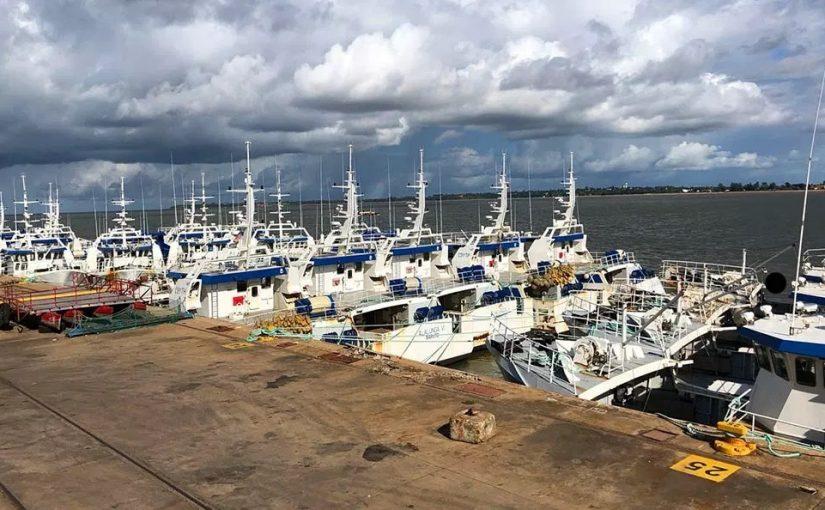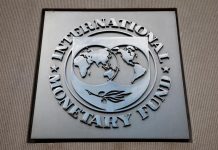Africa-Press – Mozambique. The banks Credit Suisse and VTB of Russia have agreed to pay fines to the US and British authorities for their role in the Mozambican fraud, known as the case of the “hidden debts”.
The two banks agreed, in 2013 and 2014, to lend over two billon US dollars to three fraudulent, security-related companies, Proindicus, Ematum (Mozambique Tuna Company) and MAM (Mozambique Asset Management), on the basis of illicit loan guarantees issued by the government of the day, headed by former President Armando Guebuza.
The banks undertook no serious due diligence, otherwise they would have realized that the loan guarantees were illegal, since they smashed through the ceiling for guarantees set in the 2013 and 2014 budget laws. Furthermore, the three companies had no track record and were run, not by bona fide business people, but by agents of the Mozambican intelligence service (SISE).
The head of SISE economic intelligence, Antonio do Rosario, became chairperson of the board of all three companies. This set off no alarm bells, and the banks continued to pour huge sums into the Mozambican companies.
The guarantees meant that, when, within a few years, the companies all went bankrupt, the Mozambican state was responsible for repaying the loans.
The real beneficiary from the loans was the Abu Dhabi based group, Privinvest, which cooked up the scheme. The loan money was sent, not to the companies, but to Privinvest, which was their sole contractor.
Privinvest sent the Mozambican companies fishing boats, patrol vessels, radars and other assets which were vastly overvalued. An independent audit in 2017 found that Privinvest had over-invoiced the three companies by more than 700 million dollars.
The United States entered this saga because US investors bought shares in the syndicated loan to Proindicus of 622 million dollars, and purchased the bonds that Credit Suisse and VTB financed for Ematum (amounting to 850 million dollars).
A Tuesday release from the US Securities and Exchange Commission (SEC) announces that Credit Suisse has agreed to pay almost 475 million dollars to the US and British authorities “for fraudulently misleading investors and violating the Foreign Corrupt Practices Act (FCPA)”.
The syndicated loan and the Ematum bonds raised over a billion dollars. These funds, the SEC says, “were used to perpetrate a hidden debt scheme, pay kickbacks to now-indicted former Credit Suisse investment bankers along with their intermediaries, and bribe corrupt Mozambique government officials”.
The Credit Suisse bankers, it added, “hid the underlying corruption and falsely disclosed that the proceeds would help develop Mozambique’s tuna fishing industry. Credit Suisse failed to disclose the full extent and nature of Mozambique’s indebtedness and the risk of default arising from these transactions”.
The SEC coyly refers to “Banker 1”, “Banker 2” and “Banker 3” – but we know they are Andrew Pearse, Detelvina Subova and Surjan Singh, because they all confessed to a New York court in 2019 that they had received huge bribes from Privinvest for their roles in negotiating the Mozambican loans. They entered a plea bargain and have not yet been sentenced.
The SEC said that the corrupt scheme “resulted from Credit Suisse’s deficient internal accounting controls, which failed to properly address significant and known risks concerning bribery”.
Summarising the case, the SEC said the ProIndicus and EMATUM projects were vehicles through which the Credit Suisse Bankers and intermediaries received kickbacks and corrupt Mozambique government officials obtained bribes” (the best known of these officials is former Finance Minister Manuel Chang, who is in custody in South Africa, awaiting extradition to either Mozambique or the United States).
The three bankers, the SEC added, “received kickbacks totaling at least 50 million dollars. Together with Mozambican government officials, the improper payments and kickbacks totaled at least 200 million dollars”.
The scandal became worse in 2016, when Credit Suisse learned that Ematum would not be able to meet its repayment obligations. Instead of coming clean about the corruption, “Credit Suisse and VTB structured the Exchange Offer to allow investors to exchange the payment notes they already held for new sovereign bonds issued directly by the government of Mozambique”.
Once again, the materials offered by Credit Suisse to potential investors were deceitful, since they failed to acknowledge the true scale of Mozambique’s foreign debt, and did not even mention the Proindicus and MAM loans.
Thanks to this “exchange offer”, the Ematum loan lives on under another name, and remains a substantial millstone round Mozambican necks. Even though Mozambique’s highest court, the Constitutional Council, declared the Ematum loan unconstitutional, the Finance Ministry seems determined to go on paying off the ex-Ematum bondholders until at least 2031.
“Credit Suisse provided investors with incomplete and misleading disclosures despite being uniquely positioned to understand the full extent of Mozambique’s mounting debt and serious risk of default based on its prior lending arrangements,” said Anita B. Bandy, Associate Director of the SEC’s Division of Enforcement. “The massive offering fraud was also a consequence of the bank’s significant lapses in internal accounting controls and repeated failure to respond to corruption risks.”
The director of the Enforcement Division, Gurbir Grewal, said “When it comes to cross-border securities law violations, the SEC will continue to work collaboratively with overseas law enforcement and regulatory agencies to fulfill its Enforcement mission. Our action against Credit Suisse today is yet another example of our close and successful coordination with counterparts in Europe and Asia.”
The total penalties that Credit Suisse has agreed to pay amount to 99 million dollars to the SEC itself, a 175 million dollars fine imposed by the US Department of Justice, and over 200 million dollars to the British Financial Conduct Authority
Separately, VTB agreed to pay more than six million dollars to settle SEC charges related to its role in the hidden debts scandal. According to the SEC, the Russian bank “consented to an SEC order finding that it violated negligence-based antifraud provisions of the federal securities laws. Without admitting or denying the findings, VTB agreed to pay over 2.4 million dollars in disgorgement and interest along with a four million dollar penalty”.
VTB issued a statement boasting that none of its employees had been charged with illegal conduct, as if this somehow excused its role in the scandal.
It claimed, in defiance of the facts, that “VTB operates in a completely open and transparent manner observing the highest levels of corporate governance and compliance in our daily operations, and we remain confident that VTB acted responsibly in this matter, notwithstanding an extensive scheme perpetrated by others”.
Thus we are asked to believe that Credit Suisse bankers and Mozambican officials were the bad guys, but VTB has clean hands.
VTB is still trying to use the British courts to force Mozambique to repay the money which VTB lent to MAM. “VTB expects to prevail”, it boasted.
VTB may face some difficulty in collecting any money from Mozambique, since the Russian bank is under international sanctions because of Russian aggression against Ukraine. The Russian government owns over 60 per cent of the shares of VTB.






